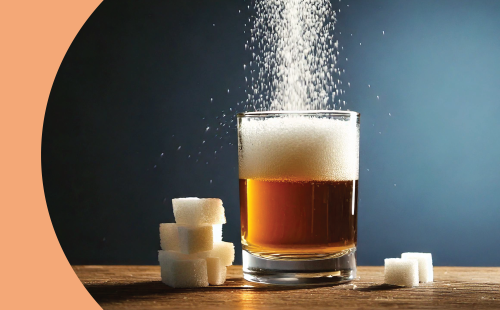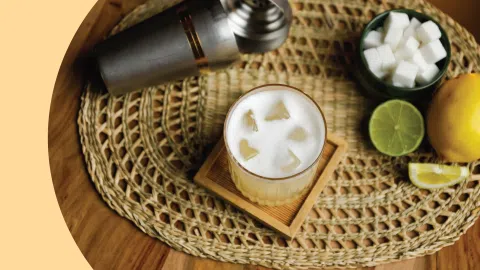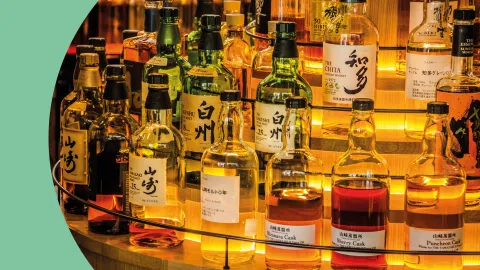When enjoying a night out or a casual drink at home, it’s easy to miss the hidden sugars your favorite types of alcoholic drinks. Pure spirits like tequila, gin, whiskey, and vodka contain no sugar, but flavored spirits, liqueurs, and cocktails often have high sugar content.
In this guide, we’ll break down the sugar content of popular alcoholic beverages, from wine and beer to spirits and ready-to-drink cocktails, along with standard serving sizes.
Let’s take a closer look at what’s in your drink and how you can enjoy alcohol while staying mindful of sugar consumption. You’ll find an overview chart of Alcoholic Beverages and Estimated Sugar Content per Standard Serving Size at the end of this article.
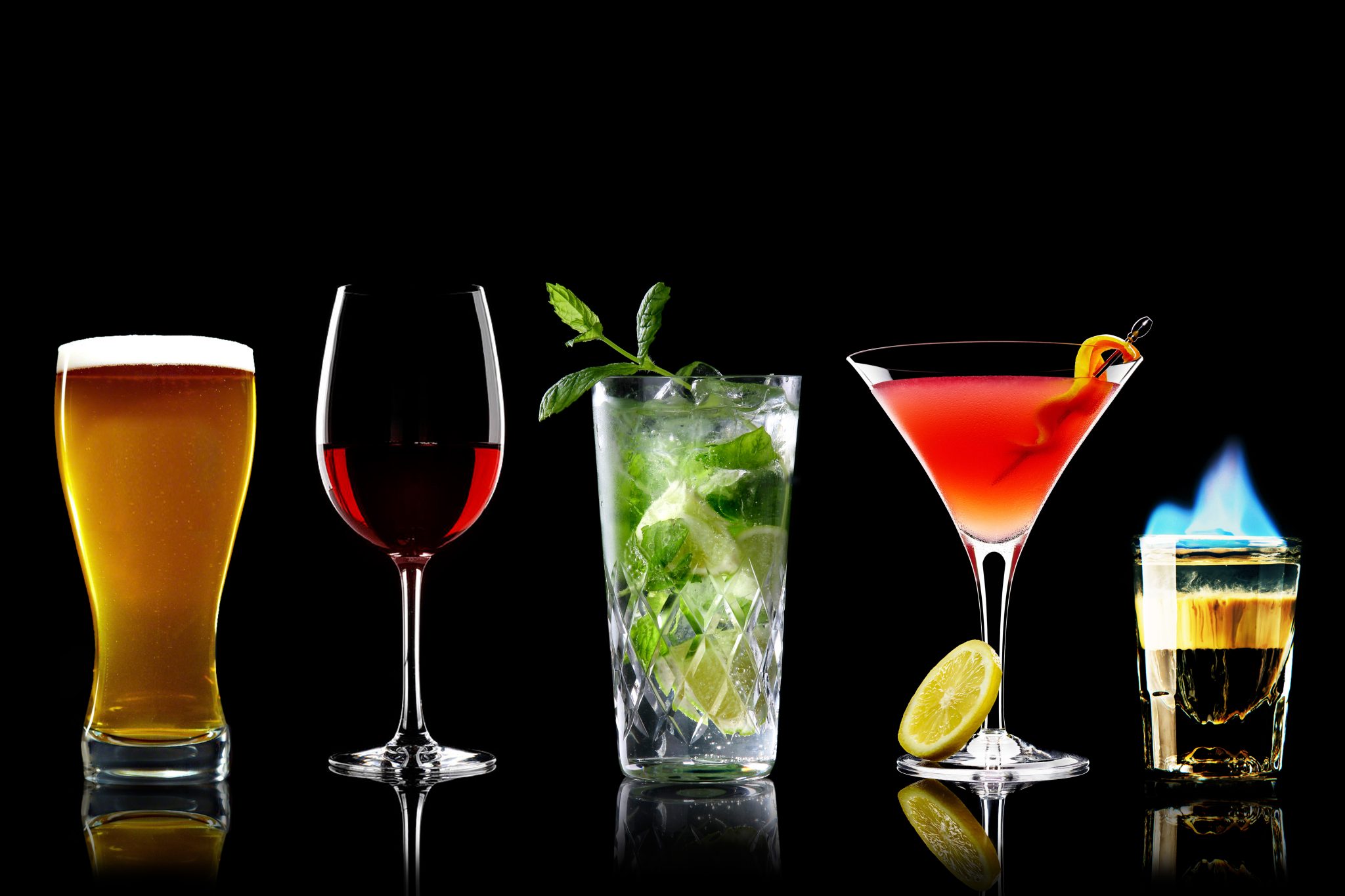
How Much Sugar in Tequila?
Tequila contains no sugar when it’s in its pure form. Pure tequila is made from the fermentation and distillation of the blue agave plant, and during this process, the sugars in the agave are converted into alcohol.
As long as you’re drinking 100% agave tequila and it’s unflavored (no added syrups or mixers), there is no residual sugar in the final product.
How Much Sugar in Whisky?
Whisky contains no sugar in its pure form. During the distillation process, the natural sugars from the grains are converted into alcohol, leaving behind no significant sugar content in the finished whisky.
Whether it’s bourbon, Scotch, rye, or another type, straight whisky should not have added sugars. However, flavored whiskies or whisky-based liqueurs (like honey whisky or cinnamon-flavored varieties) can contain added sugars, so it’s always a good idea to check the label.
How Much Sugar in Vodka?
Pure vodka is another sugar-free spirit. Since vodka is typically distilled from grains or potatoes, the fermentation process converts the sugars into alcohol, leaving no residual sugar in the final product.
As with whisky and tequila, flavored vodkas may contain added sugars, so look for the ingredients on the bottle if you’re drinking flavored varieties.
How Much Sugar in Gin?
Like vodka, pure gin contains no sugar. Gin is distilled from grains and flavored with juniper berries and other botanicals, but there’s no sugar left in the finished spirit.
Some gin-based liqueurs or sweetened gin varieties, like Old Tom Gin, might have added sugar, so it’s best to check the specific type you’re drinking.
How Much Sugar in Rum?
Rum is made from sugarcane or molasses, but during the fermentation and distillation process, the sugars are converted into alcohol. As a result, unflavored rum has little to no sugar. However, dark rums and flavored rums often have added sugars or caramel for sweetness, so their sugar content can vary significantly.
How Much Sugar in Brandy?
Brandy has no residual sugar in its pure form. The natural sugars from the fruit are converted into alcohol during fermentation and distillation.
However, some fruit-flavored brandies have added sugars for sweetness, so checking the label for added ingredients is important.
How Much Sugar in Liqueurs?
Liqueurs typically have a high sugar content because they are sweetened spirits. Here are some examples:
- Baileys Irish Cream: ~20g of sugar per 100ml
- Amaretto: ~24g of sugar per 100ml
- Kahlua: ~39g of sugar per 100ml
- Triple Sec: ~25g of sugar per 100ml
- Grand Marnier: ~24g of sugar per 100ml
- Frangelico: ~31g of sugar per 100ml
Liqueurs are used in small quantities in cocktails, so while the sugar content is high per 100ml, the actual serving might contain less sugar.
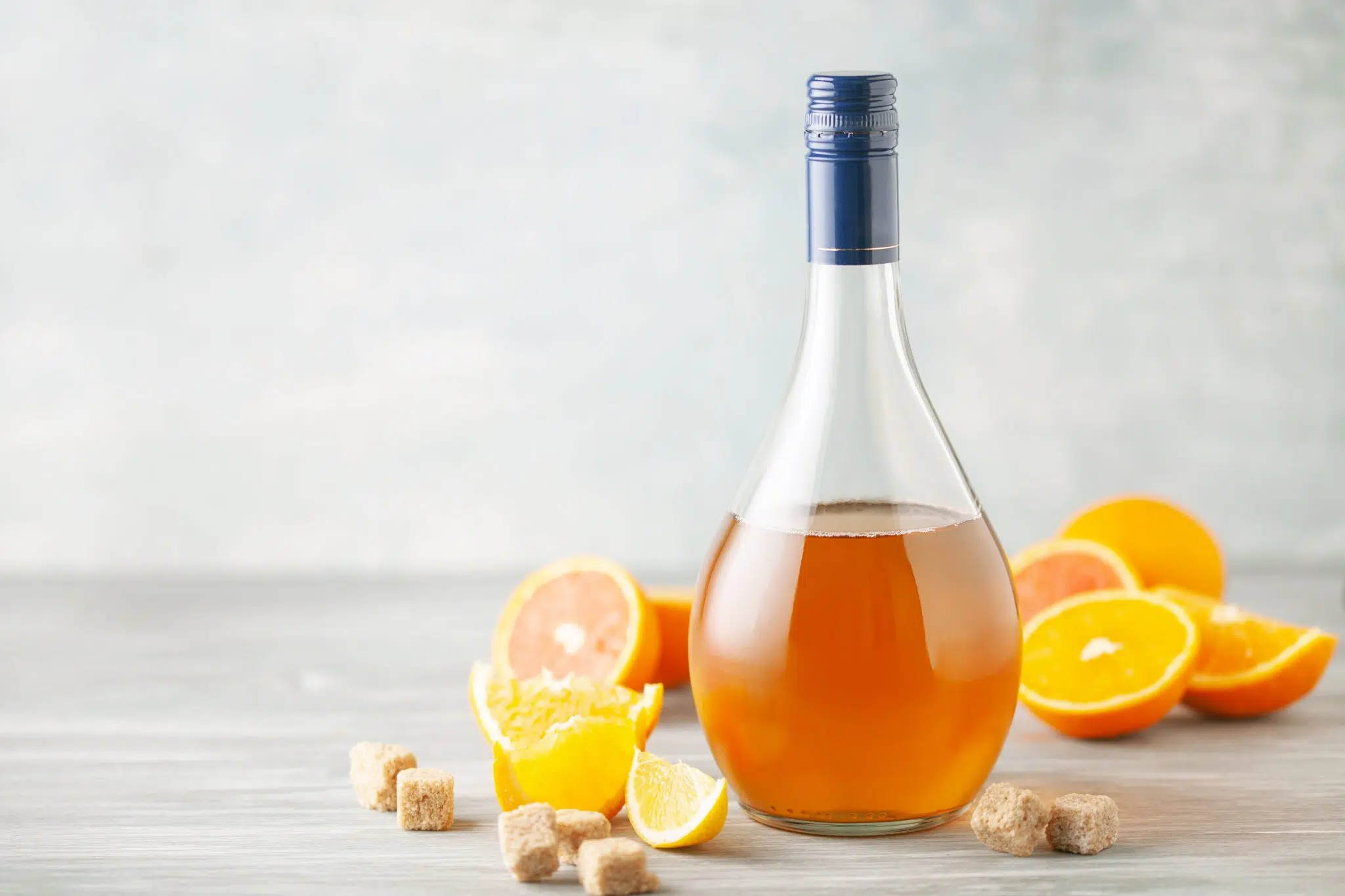
How Much Sugar in Flavored Spirits?
Flavored spirits tend to have moderate sugar levels due to added flavorings:
- Flavored Vodka (Vanilla, Caramel, Fruit): ~5-15g of sugar per 100ml
- Coconut Rum (e.g., Malibu): ~16.3g of sugar per 100ml
- Flavored Whisky (Honey, Cinnamon, etc.): ~3-10g of sugar per 100ml
Flavored spirits can vary depending on the brand, so it’s always good to check the label for exact values.
How Much Sugar in Beer?
- Regular Beer: Most beers, especially lagers and ales, contain very low levels of residual sugar. The majority of the sugars from the grains are fermented into alcohol during the brewing process.
- Sugar content: ~0-1g per 355ml (12 oz). Light beers may have slightly less sugar.
- Flavored Beer or Sweetened Craft Beers: Some craft beers and flavored varieties (such as fruit-infused beers) can contain added sugars.
- Sugar content: ~2-6g per 355ml (12 oz).
- Sweetened Ciders: Ciders, while similar to beer, can have significantly higher sugar levels, especially commercial varieties.
- Sugar content: ~20-30g per 500ml.
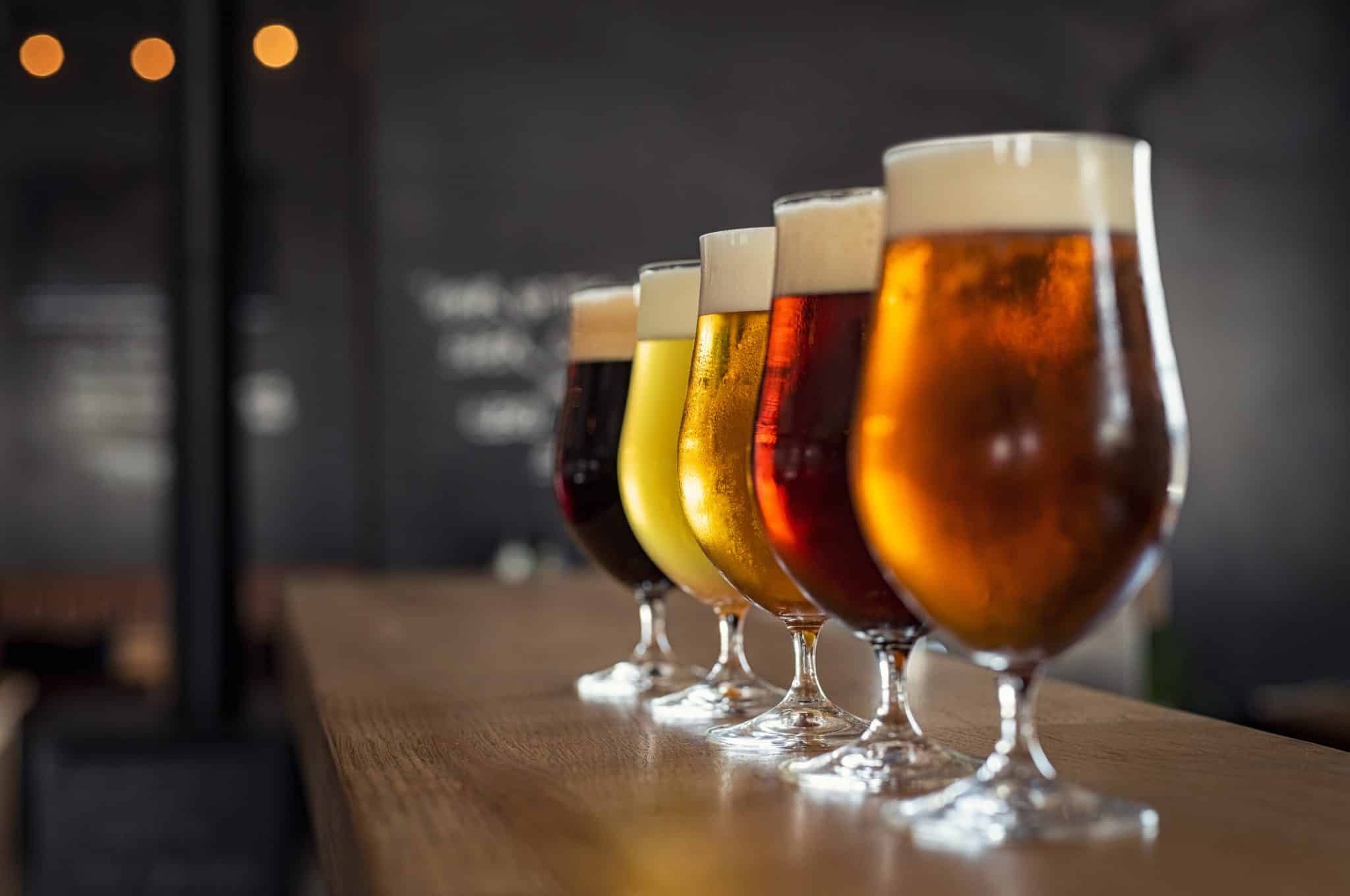
How Much Sugar in Wine (Red & White)?
- Red Wine: Red wines generally have low sugar content since most of the natural sugars from the grapes are fermented into alcohol. Dry red wines typically have very little residual sugar, while sweeter reds will have more.
- Dry Red Wine: ~9-1.5g of sugar per 150ml glass.
- Sweet Red Wine: ~3-7g of sugar per 150ml glass.
- White Wine: White wines tend to have slightly more sugar than red wines. Dry white wines will have minimal sugar, while sweeter varieties, such as Moscato or Riesling, can contain higher levels.
- Dry White Wine: ~6-1.5g of sugar per 150ml glass.
- Sweet White Wine: ~3-10g of sugar per 150ml glass.
How Much Sugar in Sparkling Wine?
- Brut Champagne or Sparkling Wine: The driest category, typically has the least amount of sugar.
- Sugar content: ~1-2g of sugar per 150ml glass.
- Demi-Sec or Sweet Sparkling Wine: These varieties have more sugar to enhance their sweetness.
- Sugar content: ~6-12g of sugar per 150ml glass.
How Much Sugar in Dessert Wines?
Dessert wines are naturally sweet and can have significant sugar content:
- Port: ~10-20g of sugar per 100ml
- Sherry: ~5-15g of sugar per 100ml (varies based on style)
- Moscato: ~12-15g of sugar per 100ml
- Sauternes: ~12-14g of sugar per 100ml
These wines are often consumed in small servings due to their richness, but they still contribute a significant amount of sugar.
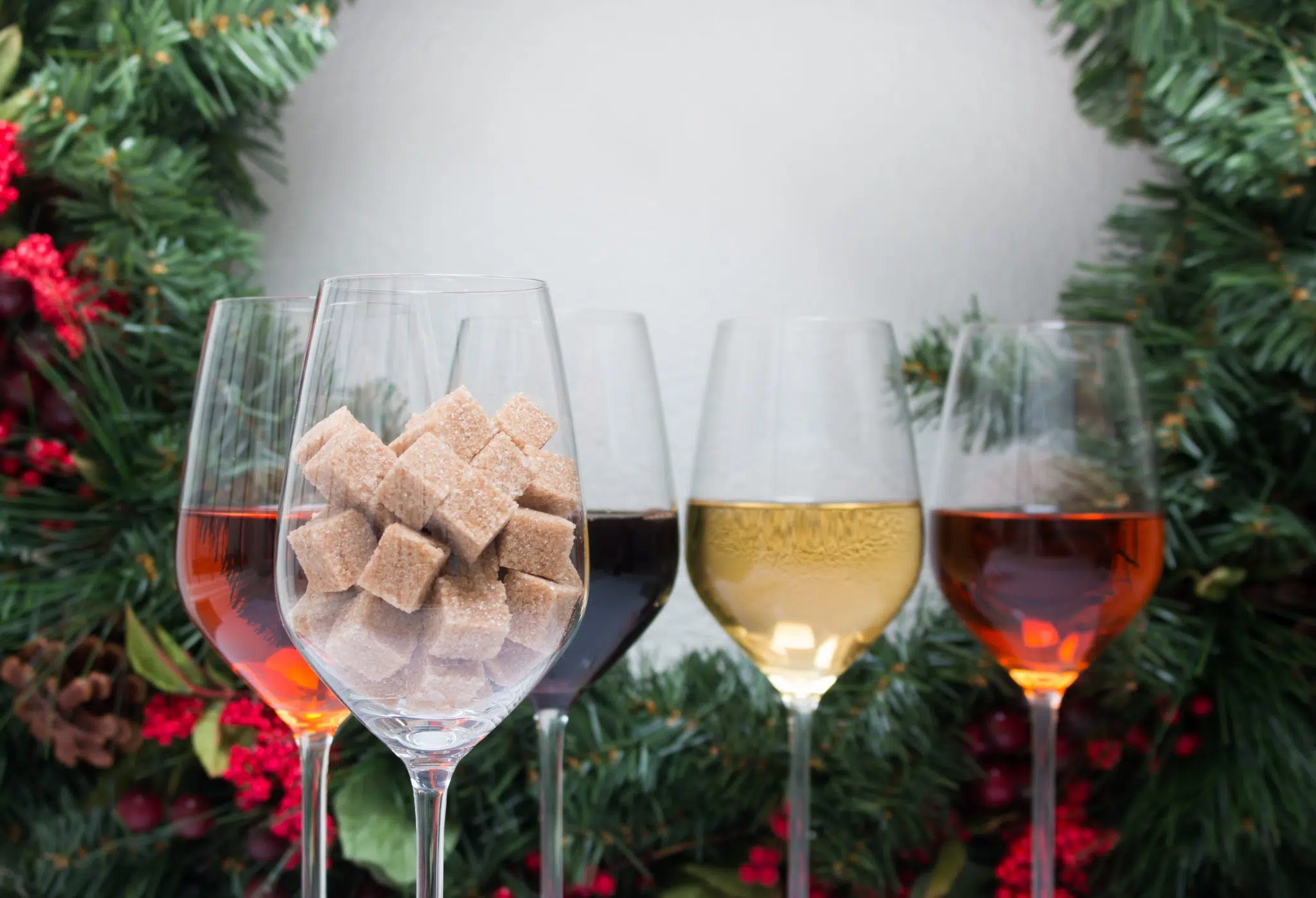
How Much Sugar in Ready-to-Drink Cocktails?
Premade cocktails are usually quite high in sugar:
- Margarita Mix (bottled): ~25-30g of sugar per 250ml
- Hard Lemonade: ~30-40g of sugar per 355ml can
- Premade Daiquiri or Mojito: ~20-35g of sugar per 250ml
These drinks are sweetened to mimic the taste of fresh cocktails, often leading to high sugar levels.
How Much Sugar in Sweetened Cocktails
The sugar content in cocktails depends heavily on the ingredients used:
- Mojito: ~15-25g of sugar per serving (due to sugar syrup)
- Piña Colada: ~22-30g of sugar per serving (due to coconut cream and pineapple juice)
- Daiquiri: ~17-25g of sugar per serving (due to sugar or syrup)
- Mai Tai: ~18-28g of sugar per serving (due to syrups and juices)
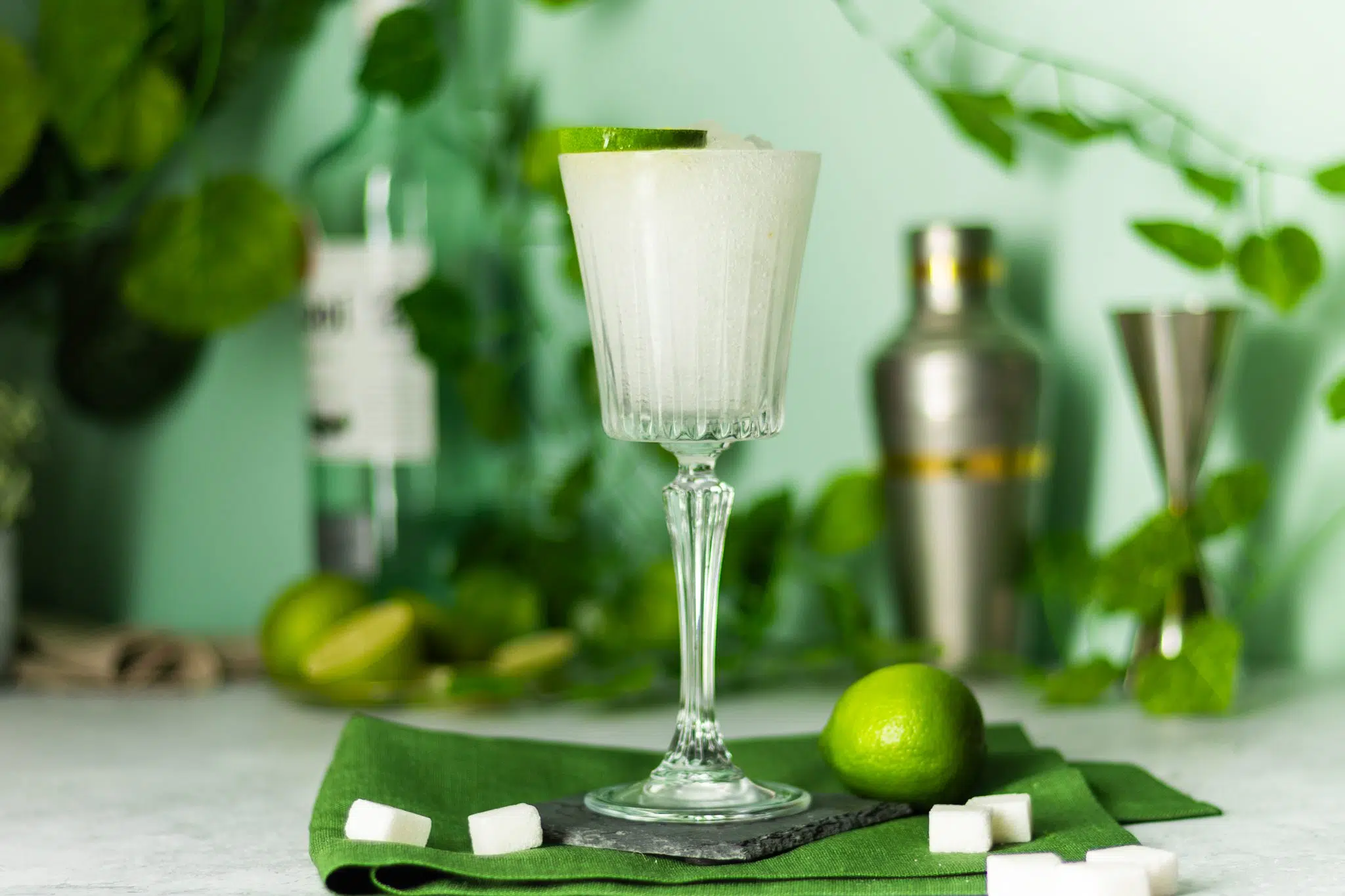
Freshly made versions can have less sugar if you control the ingredients.
Summary Table of Alcoholic Beverages and Estimated Sugar Content per Standard Serving Size:
| Alcoholic Beverage | Serving Size | Sugar Content (Approx) |
| Tequila (100% Agave) | 1.5 oz (44 ml) | No sugar |
| Whisky (Straight) | 1.5 oz (44 ml) | No sugar |
| Vodka | 1.5 oz (44 ml) | No sugar |
| Gin | 1.5 oz (44 ml) | No sugar |
| Rum (Unflavored) | 1.5 oz (44 ml) | No sugar |
| Flavored Vodka | 1.5 oz (44 ml) | ~5-15g per 100ml |
| Flavored Whisky | 1.5 oz (44 ml) | ~3-10g per 100ml |
| Baileys Irish Cream | 1 oz (30 ml) | ~20g per 100ml |
| Amaretto | 1 oz (30 ml) | ~24g per 100ml |
| Kahlua | 1 oz (30 ml) | ~39g per 100ml |
| Triple Sec | 1 oz (30 ml) | ~25g per 100ml |
| Coconut Rum (Malibu) | 1.5 oz (44 ml) | ~16.3g per 100ml |
| Port | 2-3 oz (60-90 ml) | ~10-20g per 100ml |
| Sherry | 2-3 oz (60-90 ml) | ~5-15g per 100ml |
| Moscato | 2-3 oz (60-90 ml) | ~12-15g per 100ml |
| Hard Lemonade | 355 ml (12 oz) | ~30-40g per can |
| Margarita Mix | 250 ml | ~25-30g |
| Piña Colada | 4-6 oz (120-180 ml) | ~22-30g per serving |
| Mojito | 4-6 oz (120-180 ml) | ~15-25g per serving |
| Regular Beer | 355 ml (12 oz) | ~0-1g |
| Flavored Beer | 355 ml (12 oz) | ~2-6g |
| Dry Red Wine | 150 ml (5 oz) | ~0.9-1.5g |
| Sweet Red Wine | 150 ml (5 oz) | ~3-7g |
| Dry White Wine | 150 ml (5 oz) | ~0.6-1.5g |
| Sweet White Wine | 150 ml (5 oz) | ~3-10g |
| Brut Champagne | 150 ml (5 oz) | ~1-2g |
| Sweet Sparkling Wine | 150 ml (5 oz) | ~6-12g |
These numbers are approximate and can vary between brands. Always check the labels if you need precise sugar content information.
Health Implications of Sugar in Alcohol
While alcohol itself can have certain health impacts, the added sugar in many alcoholic beverages can increase the risks. Here are a few key ways sugar can affect your health when consumed with alcohol:
- Increased Caloric Intake: Alcohol is already calorie-dense, with 7 calories per gram, but when you add sugar into the mix, the calories add up quickly. Drinks like sweetened cocktails or liqueurs can significantly boost your overall calorie intake, which may contribute to weight gain if consumed frequently. If you’re concerned about your calorie intake, check out our low-calorie cocktail collection for lighter drink options that won’t derail your diet.
- Blood Sugar Levels: For individuals with diabetes or insulin resistance, high-sugar alcoholic beverages can cause blood sugar spikes. Cocktails made with syrups, sugary mixers, or liqueurs can pose a risk to those managing their blood sugar levels.
- Dehydration: Both alcohol and sugar contribute to dehydration, which can exacerbate hangover symptoms. Drinking sugary cocktails can leave you feeling worse the next day due to the combined effects of sugar and alcohol on the body.
- Liver Health: Excessive sugar consumption has been linked to fatty liver disease, and combined with alcohol, this effect can be even more pronounced. Drinking beverages with high sugar content, like sweet wines, flavored spirits, or premixed cocktails, may increase the strain on your liver over time.
To reduce these risks, opt for sugar-free or low-sugar alcoholic beverages, and always drink in moderation.
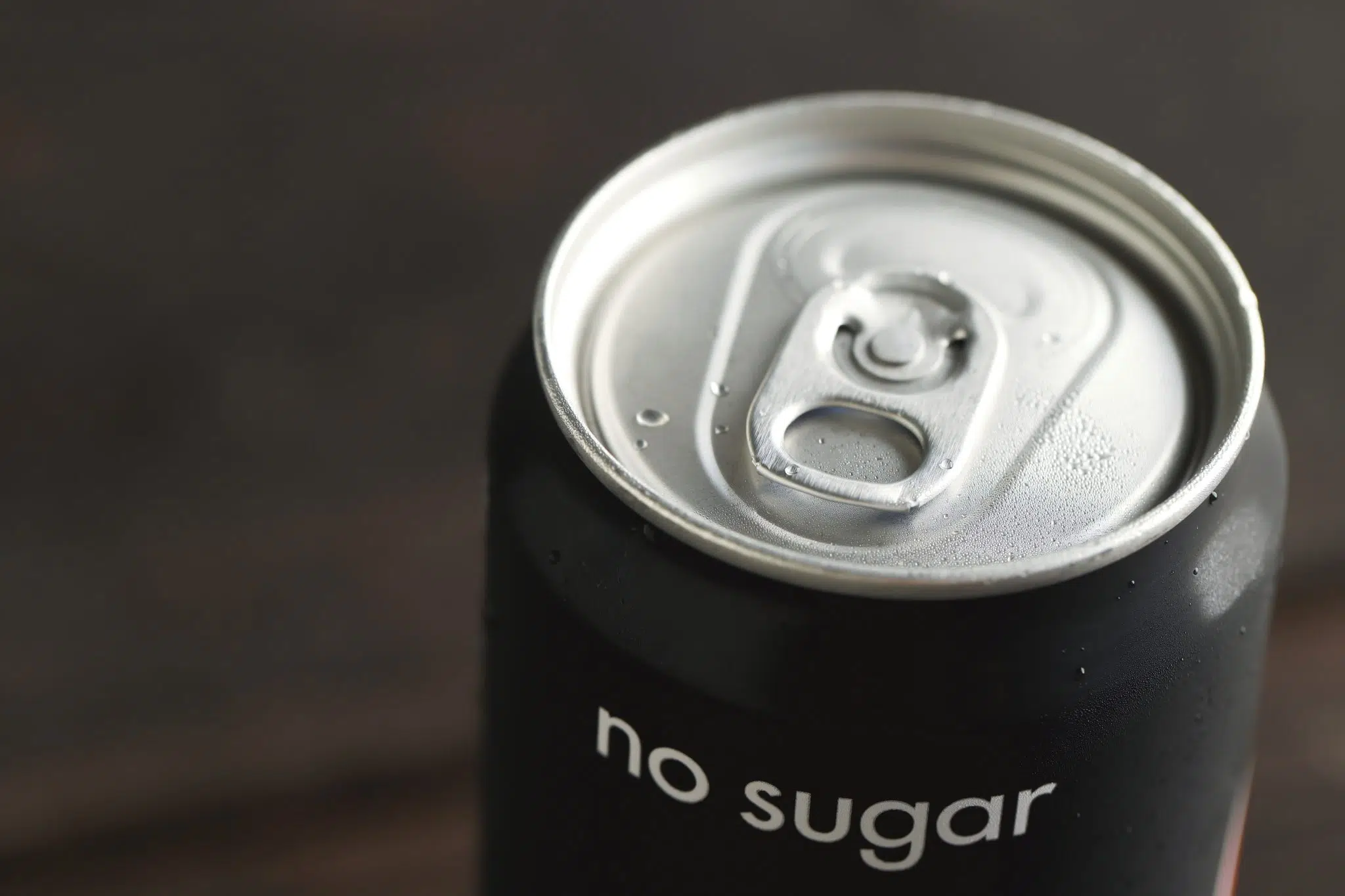
Sugar Content in Non-Alcoholic Beer and Wine
Non-alcoholic beer and wine are popular alternatives for those looking to enjoy the taste without the alcohol. However, these beverages can sometimes contain more sugar than their alcoholic counterparts.
- Non-Alcoholic Beer: Many non-alcoholic beers contain a higher amount of sugar than regular beer, as the process of removing the alcohol can increase the sweetness. On average, non-alcoholic beers can contain around 3-6g of sugar per 355ml serving, though some brands may have even higher levels depending on the style and flavor.
- Non-Alcoholic Wine: Similarly, non-alcoholic wines can also have more sugar than regular wine. The alcohol removal process can make the wine taste flat, so producers often add sugar to improve flavor. Non-alcoholic wine can contain anywhere from 2-10g of sugar per 150ml glass, with sweeter varieties (such as non-alcoholic Moscato or Riesling) reaching the higher end of that range.
